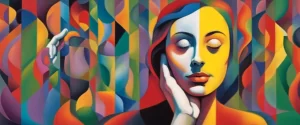
In an ever-evolving world dominated by digital technology, humans find themselves caught between the paradoxical forces of connectivity and cognitive overload. As 21st-century readers, we grapple with a continuous influx of information bombardment, diverting our attention and reshaping the very way we think. Amidst this transformative landscape, John Ratey’s “Spark” and Nicholas Carr’s “The Shallows” emerge as two compelling voices, each offering unique perspectives on the impact of technology on the human brain and cognition.
Spark delves into the neurological and psychological benefits of exercise, exploring the profound impact physical activity has on our mental well-being, cognition, and overall brain health. John Ratey, a renowned psychiatrist and associate clinical professor at Harvard Medical School, meticulously uncovers the intricate connection between exercise and brain development. Ratey argues that physical exercise not only enhances our memory, attention, and learning ability, but also holds immense potential for ameliorating psychiatric conditions such as ADHD, depression, and anxiety. By painting a comprehensive picture of the transformative effects of exercise on the brain, Ratey challenges our digital-centric lifestyles and prompts us to reevaluate the importance of physical movement in reshaping our cognitive potential.
On the other hand, Nicholas Carr’s “The Shallows” takes a critical stance on the profound impact of the internet and digital technology on our cognitive processes. Carr, a leading technological critic and Pulitzer Prize-nominated author, posits that the constant distractions inherent in the digital sphere have contributed to a decline in our ability to focus, concentrate, and think deeply. Drawing on a wide range of scientific research and historical examples, Carr highlights the rewiring of our brains due to the ubiquitous presence of technology, and questions the long-term consequences of an attention economy that values breadth of information over deep understanding. With thought-provoking arguments, Carr invites us to critically examine our habits and contemplate the potential ramifications of our digital lifestyles.
While “Spark” and “The Shallows” approach the impact of technology on the human brain from distinct angles, both books share a common goal — to shed light on the complex interplay between our cognitive functioning and the technological environment we inhabit. By examining the comprehensive benefits of exercise explored in “Spark” and the detrimental effects of technology highlighted in “The Shallows,” this comparative study aims to explore the nuances of human cognition in the face of rapid technological advancements. Through a critical analysis of these two works, we seek to unravel the underlying truths about our cognitive abilities in the digital era, and offer insights on how we can navigate this ever-evolving landscape to promote enhanced mental well-being and cognitive potential.
Brief Summary of Two Books
Spark by John Ratey
Spark” by John Ratey is a groundbreaking book that explores the powerful connection between exercise and the brain. Ratey, a renowned psychiatrist, presents a wealth of scientific evidence to prove that physical activity has a transformative effect on the mind, improving cognition, mood, and overall mental health. The book highlights various studies that reveal how exercise enhances learning capabilities, concentration, and memory while reducing stress, anxiety, and symptoms of depression. Ratey also delves into the vital role of exercise in combating disorders like ADHD and discusses how it can prevent cognitive decline as we age. Through compelling stories, expert insights, and practical advice, “Spark” convincingly portrays exercise as a key tool for optimizing our brain’s performance and leading a healthier, happier life.
The Shallows by Nicholas Carr
The Shallows: What the Internet Is Doing to Our Brains” by Nicholas Carr is a thought-provoking book that explores how the internet is influencing the way we think, read, and process information. Carr argues that our increasing reliance on digital technologies is altering our brain’s neural pathways and reshaping our cognitive abilities.
Carr takes the reader on a historical journey, from the invention of the printing press to the rise of the internet, to understand how different media have influenced human cognition. He explains that with the advent of the internet, our attention spans have shortened, and we have become accustomed to skimming and scanning rather than deeply reading and engaging with content. This shift, Carr argues, is fundamentally changing our ability to think critically and to concentrate for extended periods.
Carr delves into the neuroplasticity of the brain, explaining how repeated exposure to certain tasks or stimuli can shape the brain’s structure. He introduces the concept of neuroplasticity as a double-edged sword, capable of both enhancing and inhibiting cognitive abilities. While the internet offers unparalleled access to information and allows for quick multitasking, it also encourages distractions, constant interruptions, and superficial browsing.
The book also addresses the impact of technology on memory and creativity. Carr highlights studies that show how relying on external information storage, such as search engines, hampers our ability to retain and synthesize information. Furthermore, he argues that the constant distractions and instant gratification provided by the internet hinder deep thinking and reflection, which are crucial for creativity and problem-solving.
“The Shallows” ends by discussing the implications and potential consequences of this shift in cognitive patterns. Carr raises concerns about the effects of the internet on education, professional productivity, and our overall well-being. He urges readers to become aware of these issues and to actively strive for a healthy balance between online engagement and deep intellectual pursuits.
In summary, “The Shallows” is a captivating exploration of how the internet changes the way we think, read, and process information. Nicholas Carr offers a thought-provoking analysis of the effects of technology on our brains, raising important questions about the future of human cognition in the digital age.
Comparison between Two Books

Similarities in Self Help
Both “Spark” by John Ratey and “The Shallows” by Nicholas Carr touch upon the theme of self-help, albeit from different perspectives and with distinct approaches.
In “Spark,” John Ratey explores the impact of exercise on enhancing brain function and overall mental well-being. The book serves as a self-help guide by providing practical strategies and evidence-based research to motivate individuals to incorporate exercise into their daily lives for optimal cognitive benefits. Ratey emphasizes how physical activity can improve focus, attention, mood, and overall cognitive performance, ultimately providing readers with actionable steps towards self-improvement.
On the other hand, Nicholas Carr’s “The Shallows” takes a critical stance on the influence of technology, particularly the internet, on our cognition and ability to focus. While not explicitly classified as a self-help book, “The Shallows” provides valuable insights into the negative effects of excessive technology usage and offers thought-provoking arguments that could lead to self-reflection and ultimately self-help. Carr prompts readers to question their own technology habits and consider adopting strategies to combat the potential negative consequences, such as deep reading and minimizing distractions from digital devices.
The similarities between these two works in terms of self-help lie in the fact that they both prompt readers to take control of their own cognitive well-being. Both books suggest that individuals have the power to influence their own mental functioning through deliberate actions and choices. Whether it is through engaging in regular exercise to boost brain health (“Spark”) or critically evaluating and managing one’s relationship with technology (“The Shallows”), both authors emphasize proactive measures for self-improvement.
Additionally, both books provide readers with scientific evidence to support their claims and theories. Both Ratey and Carr draw upon various studies and research findings to bolster their arguments, enhancing the credibility of their advice and suggestions for self-help.
In conclusion, although approaching the topic of self-help from different angles, both “Spark” and “The Shallows” apply scientific evidence to motivate readers to take charge of their own cognitive well-being. They emphasize the potential positive impact of physical exercise (“Spark”) and the need for critical reflection on technology usage (“The Shallows”) to achieve personal growth and self-improvement.
Divergences in Self Help
Spark by John Ratey and The Shallows by Nicholas Carr are two very different books that approach the topic of self-help from contrasting perspectives. While both books address the impact of technology on the brain and overall well-being, they diverge in their recommendations for self-improvement and personal growth.
Spark focuses on the positive effects of physical exercise on the brain, emphasizing the importance of an active lifestyle in boosting cognitive function, mental health, and overall well-being. John Ratey explores the relationship between exercise and brain function, providing scientific evidence to support his claims. He argues that regular exercise can improve attention, learning, and memory, and even help combat mental health disorders such as depression and anxiety. The book offers practical advice on incorporating exercise into daily routines, and encourages readers to take charge of their physical fitness for a healthier brain.
On the other hand, The Shallows addresses the negative impact of technology and the internet on the human brain. Nicholas Carr argues that excessive use of technology, particularly the internet, is negatively influencing our ability to think deeply and concentrate. He highlights how the constant distraction and overload of information online can lead to decreased attention span, decreased memory retention, and decreased ability to engage in critical thinking. Carr examines the historical and neurological aspects of technology’s impact on our brains and warns against the dangers of being overly reliant on technology for cognitive tasks.
Despite both books discussing self-help measures, their divergence lies in the approaches they recommend for personal growth. Spark advocates for physical exercise as a means to improve brain function and overall well-being, emphasizing the importance of an active lifestyle. It promotes taking action and making physical fitness a priority in order to experience the benefits on mental health and cognitive abilities. On the other hand, The Shallows promotes a more introspective approach, urging readers to assess and moderate their use of technology to regain deeper thinking, focus, and engagement. Carr suggests disconnecting from constant digital stimuli to reclaim our ability to think deeply, fostering a more contemplative and reflective mindset.
In summary, while Spark focuses on the benefits of physical exercise for brain health, The Shallows warns about the negative impact of technology on deep thinking. These divergent perspectives on self-help highlight the multi-faceted nature of personal growth, demonstrating that there isn’t a one-size-fits-all solution, and that individuals may need to adopt various strategies to achieve optimal well-being.

Conclusion
Both “Spark” by John Ratey and “The Shallows” by Nicholas Carr are highly regarded books within their respective domains. The choice between them mainly depends on your specific interests and what you seek to gain from reading.
“Spark” discusses the benefits of exercise on the brain and its impact on mental health and cognitive abilities. John Ratey explores the connection between physical activity and brain function, drawing on scientific research and real-life examples. If you are intrigued by the relationship between exercise, mental well-being, and cognitive performance, “Spark” could be a worthy choice for you.
On the other hand, “The Shallows” examines the effects of the internet and digital technology on our brains and cognition. Nicholas Carr delves into the impact of the internet’s omnipresence, exploring how it shapes our thinking, attention span, and ability to concentrate deeply. If you are interested in understanding the potential effects of technology on our minds and culture, “The Shallows” might be the more appropriate pick for you.
Ultimately, it would be helpful to read reviews, summaries, or sample chapters of both books to determine which aligns more closely with your interests and what you hope to gain from reading.



